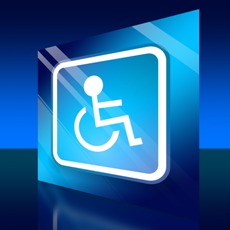International Day of Persons with Disabilities, Disability Strategy launched, new resources
Thu 01 Dec 2016
December 3 marks the United Nations International Day of Persons with Disabilities. The United Nations theme for this year’s International ...

December 3 marks the United Nations International Day of Persons with Disabilities. The United Nations theme for this year’s International Day is “Achieving 17 Goals for the Future We Want” which relate to the United Nation's 17 Sustainable Development Goals (SDGs) and the role of these goals in building a more inclusive and equitable world for persons with disabilities.
Launch of NZ Disability Strategy and other Government activities
The Office for Disability Issues has launched the New Zealand Disability Strategy 2016-2026. The revised disability strategy has eight outcomes. Outcome 4 is focused on rights protection and justice and includes the following:
"If we feel unsafe, vulnerable to or affected by violence and abuse, we will continue to have access to support that recognises our needs and responds effectively and with sensitivity. We also feel confident in speaking up or complaining if we have been discriminated against or hurt, because we are listened to and our concerns are addressed.
Our needs and rights continue to be taken into account in any prevention and response initiatives. This includes making sure there continue to be safeguards in place for those of us who may be at risk of violence and abuse (for example, caring relationships, community awareness).
What this means:
- Disabled people are consulted on and actively involved in the development and implementation of legislation and policies concerning justice, violence and abuse prevention and human rights.
- The justice sector is barrier-free and inclusive of disabled people with supports and services specific to a person’s impairment provided readily when required.
- All justice sector professionals treat disabled people with dignity and respect.
- Supported decision-making will increasingly be recognised and disabled people can use it in practice.
- Decision-making on issues regarding justice, violence and abuse prevention and human rights is informed by robust data and evidence."
The next steps for implementing the strategy in 2017 include public consultation on an outcomes framework and updating the Disability Action Plan to align with the strategy. Disability Issues Minister Nicky Wagner announced an updated Disability Action Plan 2014–2018 in December 2015.
For more information on the new strategy see the Minister for Disability Issues media release and the Office for Disability Issues media release.
For background about the Government's work on the disability strategy, action plan and the Disability Data and Evidence Plan see the following previous NZFVC stories:
- Consultation on proposed questions about disability data and evidence
- Consultation open on NZ Disability Strategy
- New tool on serving survivors with disabilities; NZ Disability Action Plan and Strategy updates
The Ministry of Health has also developed the draft Faiva Ora Plan for 2016–2021 (see the Faiva Ora National Pasifika Disability Plan January 2014 - June 2016). According to the August 2016 Disability Support Services e-newsletter, "The new plan will undergo a final round of consultation with stakeholders before the Ministry finalises it for implementation later in 2016."
Update: The Faiva Ora 2016–2021 National Pasifika Disability Plan was launched in August 2017.
Earlier this year, the New Zealand Government acceded to the Optional Protocol to the United Nations Convention on the Rights of Persons with Disabilities. The Optional Protocol allows individuals with disabilities or organisations to submit a complaint to the United Nations Committee on the Rights of Persons with Disabilities if they believe rights under the Convention have been breached.
New resources on family and sexual violence to support people with disabilities
Several new resources were published in 2016 to support people with disabilities who may be experiencing family and sexual violence as well as resources for people who provide services to individuals with disabilities.
- People First has teamed up with the It's not OK Campaign on the Keeping Safe Feeling Safe (KSFS) project. As part of the project, they have published an easy read booklet and form to report abuse. The resources are designed to help vulnerable adults and people with disabilities understand their rights and stop abuse.
- The It's not OK campaign has also updated Domestic violence, abuse and neglect of disabled people, a resource for people with disabilities and their carers.
- ACC developed the Making a Difference: Sexual Violence Primary Prevention Toolkit which includes information on what works for people with disabilities.
- Te Ohaakii a Hine – National Network Ending Sexual Violence Together (TOAH-NNEST) updated good practice guidelines for ‘mainstream’ crisis support services responding to survivors of sexual violence including "Everything, with us": working with people with disabilities.
See the Clearinghouse library for additional research and resources about people with disabilities. Also see the 2014 report, The Hidden Abuse of Disabled People Residing in the Community: An Exploratory Study from Tairawhiti Community Voice.
CCS Disability Action Library And Information Service - an online library all about disability where anyone can borrow from the library, search the catalogue or ask for help to find information
Office for Disability Guides and Toolkits webpage - lists resources designed to help implement the New Zealand Disability Strategy
Image: Pixabay


